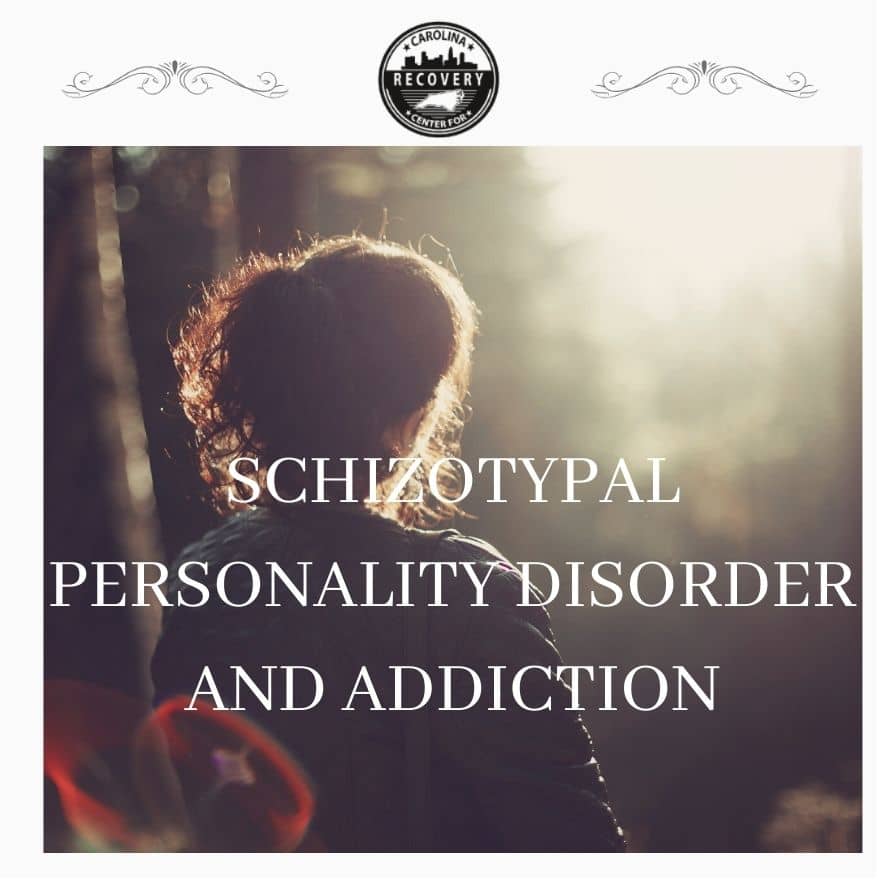Schizotypal Personality Disorder and Addiction

Medically Verified: 2/1/24
Medical Reviewer
Chief Editor

All of the information on this page has been reviewed and verified by a certified addiction professional.
People who suffer from personality disorders are at a heightened risk of substance abuse and addiction due to the symptoms they experience and the social stigmas they face. One lesser-known personality disorder that can increase the risk of addiction is schizotypal personality disorder.
What is Schizotypal Personality Disorder?
Schizotypal personality disorder is a personality disorder that is characterized by unusual thinking patterns and behaviors. People with this condition may seem odd or peculiar to others, but the person may not realize that their behaviors are abnormal. Friends and loved ones often describe people with this personality disorder as “eccentric” or “strange.” It is thought to affect between 3-5% of the population.[1]
Although the name may sound similar, a schizotypal personality disorder is not the same thing as schizophrenia. People with schizotypal personality disorder may have odd beliefs and superstitions, but they typically do not have hallucinations or delusions like people with schizophrenia do. Instead, they have a hard time forming close relationships and maintaining them due to a distorted perception of social interactions and odd social behavior.
There are many risk factors that increase the likelihood of developing a personality disorder including:
- Genetics
- Childhood trauma
- Emotional regulation
- Temperament
- Reactions to life events
- Coping skills
People who have relatives who suffer from schizophrenia or personality disorders may be more likely to have schizotypal personality disorder.
Signs and Symptoms
Like other mental health conditions and personality disorders, this condition is diagnosed based on symptoms. There is no lab or diagnostic test to confirm the disorder.
Signs and symptoms include:
- Having limited emotional responses or seeming “flat”
- Being stiff or awkward when trying to relate to others
- Coming across as cold, aloof, or emotionally distant
- Being preoccupied with fantasies or daydreams
- Struggling with intimacy
- Dressing, speaking, and acting in odd or unusual ways
- Having few friends
- Having strange beliefs or magical thinking, such as thinking one has certain powers
- Being suspicious or paranoid of others
- Feeling anxious or uncomfortable in social situations
- Experiencing social anxiety that doesn’t subside with familiarity
Coping with personality disorders can be extremely difficult. For example, people with schizotypal personality disorder often have poor social skills and few fulfilling relationships. This loneliness can result in depression and anxiety as well as unhealthy coping skills, such as drug and alcohol abuse.
The Relationship Between Schizotypal Personality Disorder and Addiction
People who suffer from schizotypal personality disorder are more likely to engage in substance abuse than the general population. They may abuse alcohol to cope with anxiety and relax in social situations or they may use drugs to cope with feelings of depression and alienation.
Schizotypal personality disorder is often related to increased rates of alcohol, marijuana, and nicotine use.[2]
Using drugs or alcohol to cope with mental health symptoms can be extremely risky and often leads to addiction. Studies show that up to 46-56% of patients being treated for addiction also have a personality disorder. Overall, an estimated 22-47% of people with personality disorders experience a substance use disorder at some point in their lives.[3]
Substance abuse and addiction will worsen symptoms of schizotypal personality disorder. They can also complicate the treatment experience because addiction can make a person less likely to show up for their therapy sessions or take their medications. As a result, it is crucial to treat both conditions at the same time.
Dual Diagnosis Treatment for Schizotypal Personality Disorder and Addiction
While there are no medications approved for the treatment of schizotypal personality disorder, it can be treated using many of the same techniques and psychotherapies that are used to treat drug and alcohol addiction.
In addiction treatment, psychotherapy aims to help patients identify and modify negative behaviors in regard to their substance abuse, but for personality disorders, the goal of therapy is to help patients change their relationship styles, coping skills, expectations, thinking habits, and behaviors. Dual diagnosis treatment programs offer integrated care that can help patients recover from both addiction and personality disorders at the same time.
Psychotherapy includes:
- Cognitive-behavioral therapy
- Supportive therapy
- Supportive-expressive therapy
- Family therapy
- Group therapy
People who are struggling with schizotypal personality disorder and addiction may also have another co-occurring disorder, such as depression or anxiety. These symptoms can be managed using medications like antidepressants or antipsychotics.
Neither addiction nor personality disorders can be cured, but they can be treated and successfully managed with the help of an individually-tailored recovery program.
Find Help Today
At Carolina Center to Recovery, we’re dedicated to empowering everyone who suffers from co-occurring disorders so that they can make increasing progress on their road to recovery. Our individually-tailored therapies are uniquely designed to address the needs of each patient, effectively helping guide them through the recovery process.
Don’t wait any longer to get the care you deserve. Call now to learn more about our dual diagnosis addiction treatment center in North Carolina.
References:

